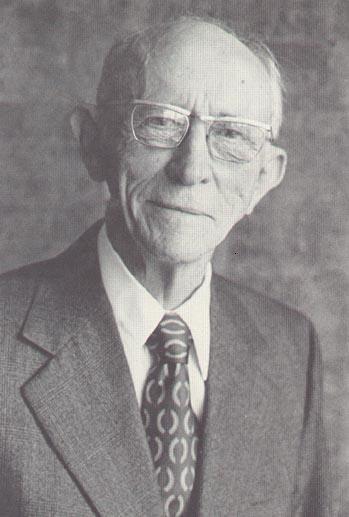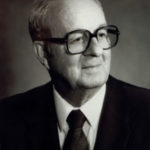Description
vance havner books
ROAD TO REVIVAL
by
Vance Havner
Contents
PREFACE. 3
One – ROAD TO REVIVAL. 4
Two – “ARE YOU THERE?” 14
Three – “STIR UP THE GIFT OF GOD” (II Timothy 1:6) 22
Four – WONDERFUL. 29
Five – WHERE ARE THE MARKS OF THE CROSS?. 36
Chapter Six – SHIELDS OF BRASS. 42
Seven – WHY HAVE THE SHOWERS BEEN WITHHOLDEN? 49
Eight – “WHERE IS THE LORD GOD OF ELIJAH?” 57
Nine – PROPHETIC DOCTRINE AND PRACTICAL DUTY. 66
Ten – NOTHING IN HIS HAND.. 79
Eleven – POWER, LOVE AND A SOUND MIND.. 89
Twelve – JESUS CHRIST THE SAME. 98
vance havner books
PREFACE
THE sermons included in this collection have been preached in special meetings and Bible conferences over the country. Most of them have appeared in Christian magazines and we thank the following for permission to reprint articles: Revelation, of Philadelphia, for “Wonderful,” “Stir Up the Gift of GOD,” “Where Is the LORD GOD of Elijah?” “Where Are the Marks of the Cross?” “Nothing in His Hand,” and “JESUS CHRIST, the Same”; to Moody Monthly, of Chicago, for “Prophetic Doctrine and Practical Duty”; to Western Recorder, of Louisville, Ky., for “Shields of Brass,” and to the Temple Evangelist of Fort Wayne, Ind., for “Why Have the Showers Been Withholden?”
The messages are written very much as spoken, with the peculiarities which distinguish sermons from essays. No attempt has been made to eliminate occasional repetitions of thought or expression in the different messages. They go out with the author’s desire and prayer that primarily they may help believers along the “road to revival” and thereby bring many unsaved to a saving knowledge of the Lord JESUS CHRIST.
VANCE HAVNER.
Hickory, N. C.
vance havner books
One – ROAD TO REVIVAL
THE eighteenth chapter of First Kings sets before us in application the road to revival. In the seventeenth chapter, Elijah, that solitary, rugged prophet of GOD, broke suddenly upon the scene to announce before King Ahab a three-year drought. Then he hid himself at GOD’s command by the brook Cherith. In the eighteenth chapter he shows himself at GOD’s command before Ahab again. It would be well if every preacher hid first at Cherith before appearing at Carmel. Then there would be fewer failures and more fire, falling Fire from above.
Elijah’s second appearance before Ahab finds famine in Samaria. We are living in a spiritual famine nowadays, and there is need of a prophet from GOD’s hiding place. There can be such a man in any age if he will pay the price. Elijah was no superman, he was subject to like passions as we are, but he prayed earnestly and in that he outstrips us. He could pray down both fire and water and we need both today, fire of power and showers of blessing. But we are all so busy hurrying hither and thither in a great fever about nothing that we would never dream of staying awhile at Cherith. “A waste of time,” we efficient, quantity- producing Americans would call it. So we hustle around trying to do things for GOD before we have allowed Him to do things for us. “He who waits on GOD loses no time”; Elijah needed Cherith and Paul needed Arabia and you and I had better “come apart,” lest we do come apart and go to pieces!
Elijah encountered first of all Obadiah, the governor of Ahab’s house. Now Obadiah was a good man and feared GOD, but like many another he was working with the wrong crowd. He was lined up with Ahab when he should have taken his stand with Elijah, the separated man of GOD. And he is a perfect type of thousands of Christians today who fear GOD at heart but are trying to better conditions in league with the powers that be, instead of praying for revival. Obadiah was out at Ahab’s command looking for grass when he should have been praying for rain and calling men to repent and return to GOD. Sin was the trouble then as it is today, and when men turned to GOD the showers fell. What a waste of time then to be out running around with this little club and that little campaign, boosting this project and backing this program, trying to find a little grass when the real trouble is politely ignored!
For that reason our soul loathes the Obadiah policy in our churches trying with parties and banquets and pageants and pep meetings and performances borrowed from the world to stir up fire that must fall from above. We grant that sometimes a little grass may be discovered by some of these foragers, but never was a drought broken by such pitiful expeditions. We have had enough of the program of Ahab and Obadiah: it is time to assemble on Carmel, and prove GOD by the test of Fire.
There is no more tragic sight than an Obadiah, in the pulpit or out, entangled with the affairs of this world and infected with its futile enthusiasms when he ought to be burdened for the sins of the people. In his day, Spurgeon, crying out against ministers who attended the theatre, said, “The fact is that many would like to unite church and stage, cards and prayer, dancing and sacraments. If we are powerless to stem this torrent, we can at least warn men of its existence and entreat them to keep out of it. When the old faith is gone, and enthusiasm for the Gospel is extinct, it is no wonder that people seek something else in the way of delight. Lacking bread, they feed on ashes; rejecting the way of the Lord, they run greedily in the path of folly.” Today this sort of preaching would be branded unethical for an easy-going Rotarianism takes the place of repentance and Obadiah all too often gets his orders in the palace of Ahab instead of lining up with Elijah to call men back to GOD.
Doubtless Obadiah honored Elijah and respected his power with GOD, but one suspects that he felt it a better policy for himself to be diplomatic and stand in with the government. Today no group of men is persecuted more than the few prophets who insist on repentance and confession of sin and the old-time Fire from above. And it is tragic that much of their persecution comes from Obadiahs, who deem them alarmists and sensationalists and who prefer a grass-hunting expedition under Ahab to a Carmel experience with Elijah. We do not defend all the methods and practices of our modern prophets; some of them give us grief and pain. But the remedy they propose is the only one that will work, bitter medicine though it may be. They shock us terribly at times, but we had better be shocked than stupefied. We are weary with looking for grass with Ahab; GOD is calling us, though sometimes through rather rough voices, to halt no longer between two opinions; we shall not need to look for grass when GOD sends rain.
Then Elijah met Ahab, who asked, “Art thou he that troubleth Israel?” This stern old man of GOD was not the first nor last of that succession of troublemakers who through the ages have kept nations off the rocks and GOD’s people from slumbering their time away. We are not speaking here of that pestiferous, mosquito sort of pulpiteers who live to fight while they fight to live. But we do mean that noble line of prophets and preachers who have aroused sanctuary slumberers and given wicked rulers insomnia by crying aloud and sparing not instead of keeping silent in an evil time.
Of this sort was Samuel, who made the elders tremble at his coming; Jeremiah, the timid soul whom GOD made a defenced city, an iron pillar and a brazen wall; Ezekiel, with his forehead harder than adamant against a sinful nation; Micah, who wailed as the dragons and mourned as the owls, which must have been awfully disturbing to the peace; Amos, the country preacher, who horrified the elite and offended dignified Amaziah, the court preacher; John the Baptist, who stood by a riverside and made it uncomfortable in the king’s palace; Paul, who exceedingly troubled Philippi and created no small stir in Ephesus and won the title of a “world upsetter.” And what shall we say of Savonarola and John Knox and Martin Luther and John Wesley and George Whitfield and Charles G. Finney and Dwight L. Moody and Billy Sunday, who gave no quarter to Satan, saint, or sinner, until men assembled at Carmel and GOD answered by fire. For these follow in the steps of Another Who was accused of perverting the nation in His day, that Divine Disturber Who makes us restless until we rest in Him.
Elijah answered Ahab’s taunting question with a stern pronouncement, which immediately put the shoe on the right foot: “I have not troubled Israel; but thou, and thy father’s house, in that ye have forsaken the commandments of the LORD, and thou hast followed Baalim.”
As we have just said, there was a sense in which Elijah was a troubler of Israel in that he stirred them from their complacency; but the real troubler was Ahab and his sinful house. Someone has said that preachers used to point the finger at the individual and say, like Nathan to David, “Thou art the man!” But today too many wave a hand at the audience in general and no one knows just who is being addressed.
Then Elijah called for a gathering of the priests of Baal for a dramatic showdown. When they and the people had assembled, he cried, “How long halt ye between two opinions? if the LORD be God, follow him: but if Baal, then follow him. And the people answered him not a word.” It is time today to draw lines and make men face the issue. Too long have we dwelt in spiritual half truths, ethical fogs, and moral twilights.
Our church life has mixed with the world, until being a Christian means nothing; and if some prophet calls for men to declare themselves and challenge believers to surrender and separation, he is accused of tearing up churches and upsetting communities. Alas, men have settled on their lees and rested at ease in Zion and conformed themselves to the court of Ahab until they resent being called out into the open to show their true colors. Of course, it is an uncomfortable and disturbing procedure when men have been let alone so long and he who calls people to it is in for a thankless job; but there can be no revival until men cease halting between two opinions.
Elijah proposed next that sacrifices be offered to Baal and to JEHOVAH; the priests of Baal would call on him and Elijah would call on GOD and “the GOD that answereth by fire, let him be God.” We read that the people answered, “It is well spoken.” I do not believe that people have changed much, and would be willing today to agree to such a test, but so little fire has been seen lately that men are asking, “Where is the Lord God of Elijah?” Down through the ages it has ever been thus: the hearts of men have grown skeptical and disillusioned and doubtful until another Elijah came along who walked with GOD and could pray down fire from Heaven, and then revival has come.
And let it never be forgotten that here is the real test: “The God that answereth by fire, let him be God.” Men have made finances and figures the test, and the church with most statistics in its favor has been adjudged most favored of GOD. Fame has been made the criterion and publicity has created much that GOD never approved from Heaven. And their number is legion who, in their Christian experiences, would have it read, “The GOD Who answereth by feelings, let Him be GOD.” But the test is FIRE, supernatural fire, not the strange fire of Nadab and Abihu, but the heavenly flame of Pentecost. Too many of our meetings can be accounted for on purely natural grounds: we meet and sing and talk and pray and nothing happens that cannot be explained. We need some meetings that cannot be accounted for nor be explained away, where men must shake their heads and say, “We have seen strange things today.”
Some may attribute it to new wine, but it was that sort of meeting that added three thousand souls to the church in a day. The infidel who stood at a burning church and explained his presence there by saying, “I never saw this church on fire before,” would be found multiplied by thousands if spiritually our assemblies caught on fire from above.
Even fundamentalists do not escape here, for all too often they have the facts but still lack the Flame. GOD is not revealed so much in correct theology; heads may be right and hearts still be wrong. Painted fire may even be added to touch up the doctrine, but painted fire is not Pentecost fire, it will not burn.
Think of the many tricks by which the church today apes the world to attract men and money. The business and financial and social methods of the age have been brought into the sanctuary, and the cleverness of man is employed to do the work of GOD. But the world has us beaten from the start at that game and GOD will not honor it. GOD works from above with fire from Heaven and we put the Gospel to shame by stirring up a fire from our own sparks. Even the world knows the difference, and men only laugh at a church trying to beat the world at its own game. One meeting where GOD answers by fire is worth all our convocations in the energy of the flesh.
Elijah and the priests of Baal went ahead with their test and, of course, there was no answer from the heathen god. Then we read that Elijah began the demonstration of the true GOD by repairing the altar of the Lord that was broken down. Never was there a revival that did not so begin. And if today GOD answers from Heaven we must begin to repair His broken altars.
Altars of consecration where once we gave ourselves to GOD and promised to do His will alone; where we offered Him our talents and time and possessions, ourselves, but with the years we have kept back part of the price and lied unto GOD until it is a wonder we do not drop dead like Ananias and Sapphira;
Altars of dedication where we gave our children to GOD, but later chose our way for them and denied GOD;
Family altars where once we gathered to read the Word and commit our way unto the Lord, but now abandoned with the silly excuse that since times have changed, it is no longer practical;
Altars of praise and testimony where once the redeemed of the Lord said so, but sin and worldliness and neglect have closed our lips and stolen our song;
Altars of service where once we lived only, always, for the King, but now deserted because we live for self and none beside, just as if JESUS had never lived, just as He had never died. Here is our task, to repair these broken altars, and all our pious dodges and clever substitutes to avoid repentance will never avail.
Stained-glass windows and robed choirs and anthems and banquets and dramas and eloquence in the pulpit and elegance in the pew have never fooled GOD. He demands truth in the inward parts, and Heaven will keep silent and no Fire will ever fall until we approach Him with rebuilt altars in the name of the Lord.
So Elijah prayed, and the Fire fell and consumed sacrifice, wood, stones, dust, and water, and all the people fell on their faces and said, “The Lord, he is the God; the Lord, he is the God.” I believe that our own generation, wicked and cynical as it is, would recognize fire from Heaven if there were enough of it today to attract attention. But, alas, impotent Christians and churches will never bring men and women down on their faces before GOD. If we stopped half of our feverish and futile “kingdom work” without the King and repaired GOD’s altars and sought the old-time power, we would need no argument to convince an unbelieving world that “the Lord, he is the God.”
It is quite natural that immediately following this dramatic climax on Carmel, Elijah should say to Ahab, “Get thee up, eat and drink; for there is a sound of abundance of rain.” When GOD’s altars are repaired and the Lord answers by fire and men recognize the true GOD, the showers of blessing are on the way. Today we sing:
“Showers of blessing, Showers of blessing we need, Mercy drops ’round us are falling, But for the showers we plead.”
But we might have had the showers long ago if we had met the conditions. GOD is not reluctant, but we are rebellious and He is waiting for His altars to be restored. We sing:
“There shall be showers of blessing.”
But a cynical world wonders why it is always “shall be,” something coming which never arrives, and even the church has grown discouraged and sings it only to save its face.
And yet there is nothing uncertain, indefinite, hit-or-miss, about revival. The road is clearly marked and it is plain hypocrisy merely to sing about showers of blessing when we will not pay the price for abundance of rain. We act as though revival were a matter of chance or whim, a sudden occasional notion on the part of GOD with which we have little to do. But GOD is ever ready to bless His people when they repair the broken altars and pray for the old-time fire.
This dramatic chapter closes with a second thrilling scene on Carmel. Ahab goes to eat and drink and Elijah goes to the mountaintop, we read, and what a snapshot that gives us of these two characters, a contrast that appears in every generation.
Today men eat and drink, but thank GOD for the solitary souls who stay apart to pray. Will you be one who, while men eat and drink as in the days of Noe, will seek the quiet place alone with GOD and pray for showers of blessing? The outlook may seem hopeless and there may be no sign in the sky, but GOD keeps His promise and there will come the cloud like a man’s hand and then the rain. May GOD raise up in this day of time-serving Obadiahs in Ahab’s court separated prophets who, though men of like passions as we are, can pray down fire from above!
vance havner books





Reviews
There are no reviews yet.